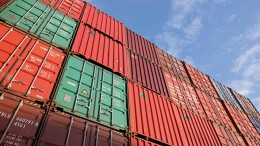The Spanish Exports Map Is Transforming
Enrique Fanjul (Real Instituto Elcano) | There has been a lot written lately about the role of the foreign sector as the driver of the Spanish economy’s recovery. There have also been some very interesting academic papers published, which provide us with more details of the new configuration of Spanish exports. The exports map is changing, with non-tourism services an increasingly more important segment.










